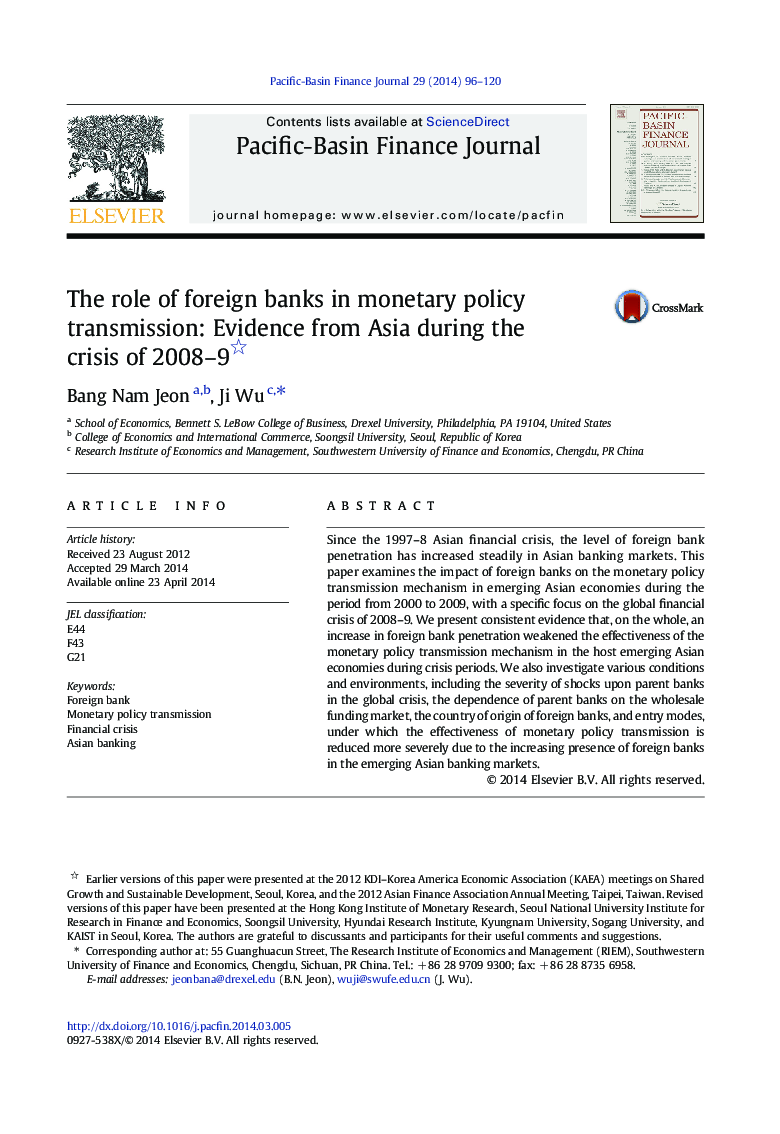| Article ID | Journal | Published Year | Pages | File Type |
|---|---|---|---|---|
| 973593 | Pacific-Basin Finance Journal | 2014 | 25 Pages |
Abstract
Since the 1997-8 Asian financial crisis, the level of foreign bank penetration has increased steadily in Asian banking markets. This paper examines the impact of foreign banks on the monetary policy transmission mechanism in emerging Asian economies during the period from 2000 to 2009, with a specific focus on the global financial crisis of 2008-9. We present consistent evidence that, on the whole, an increase in foreign bank penetration weakened the effectiveness of the monetary policy transmission mechanism in the host emerging Asian economies during crisis periods. We also investigate various conditions and environments, including the severity of shocks upon parent banks in the global crisis, the dependence of parent banks on the wholesale funding market, the country of origin of foreign banks, and entry modes, under which the effectiveness of monetary policy transmission is reduced more severely due to the increasing presence of foreign banks in the emerging Asian banking markets.
Related Topics
Social Sciences and Humanities
Economics, Econometrics and Finance
Economics and Econometrics
Authors
Bang Nam Jeon, Ji Wu,
